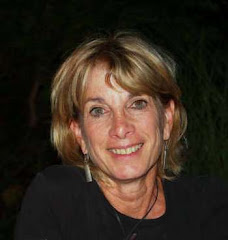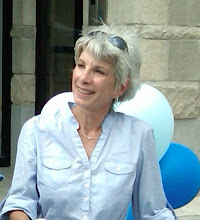 In the deep cold of January, with winter's short days and long nights, along comes Tu B'Sh'vat to remind us that no matter how miserable we may feel, spring really is just around the corner.
In the deep cold of January, with winter's short days and long nights, along comes Tu B'Sh'vat to remind us that no matter how miserable we may feel, spring really is just around the corner. Tu B'Sh'vat, the Jewish "New Year of the Trees," may make agricultural sense in the Middle East, but what is one to make of it in Larchmont?
A sunny winter day with the temperature climbing past 40 seemed like a good time to find out. Camera in hand, I set out for a walk around the garden.
 Sure enough, the green leaves of the snowdrops are already pushing through the earth. The delicate white flowers won't appear for two months, possibly above a blanket of snow, but these shoots, which pushed aside the ground, frozen solid from the deep freeze of recent days, are hardy reminders that winter will end.
Sure enough, the green leaves of the snowdrops are already pushing through the earth. The delicate white flowers won't appear for two months, possibly above a blanket of snow, but these shoots, which pushed aside the ground, frozen solid from the deep freeze of recent days, are hardy reminders that winter will end. Here in the Northeast, all you need in order to know whether you need your heavy duty parka or a fur coat for the walk to the train is a Rhododendron outside your window. On the coldest of days the leaves curl up like vertical soldiers, wrapping themselves tightly to contain what little warmth they can muster. But on a warm winter day, the leathery evergreen leaves unfold and soak up the sun.
 Rhododendrons, like their cousins the azaleas, bloom later in the spring, which means the flowers we'll enjoy come May and June were formed in the fall. Sure enough, the buds on the white rhody, planted just two years ago, are full and firm, promising me they are getting ready for spring too.
Rhododendrons, like their cousins the azaleas, bloom later in the spring, which means the flowers we'll enjoy come May and June were formed in the fall. Sure enough, the buds on the white rhody, planted just two years ago, are full and firm, promising me they are getting ready for spring too. A few more steps and I saw all around me the signs that earth is preparing for spring. The lilac buds at the tips of long bare branches already show a hint of purple; the Corylopsis, a form of Witch Hazel, is covered in buds; and hyacinths, probably planted too close to the surface, are pushing up.
A few more steps and I saw all around me the signs that earth is preparing for spring. The lilac buds at the tips of long bare branches already show a hint of purple; the Corylopsis, a form of Witch Hazel, is covered in buds; and hyacinths, probably planted too close to the surface, are pushing up.Tu'B'Sh'vat, which begins at sundown Friday, January 29, is traditionally celebrated by eating certain foods (figs, pomegranates, olives, dates and honey)or planting trees. In recent years, Tu B'Sh'vat has become the darling of Jewish environmentalists, and schools and synagogues have developed a wealth of materials to remind us of our duty to tend for the earth.
That's fine, but for me, a simple reminder that winter is going to end soon suffices.
.


No comments:
Post a Comment